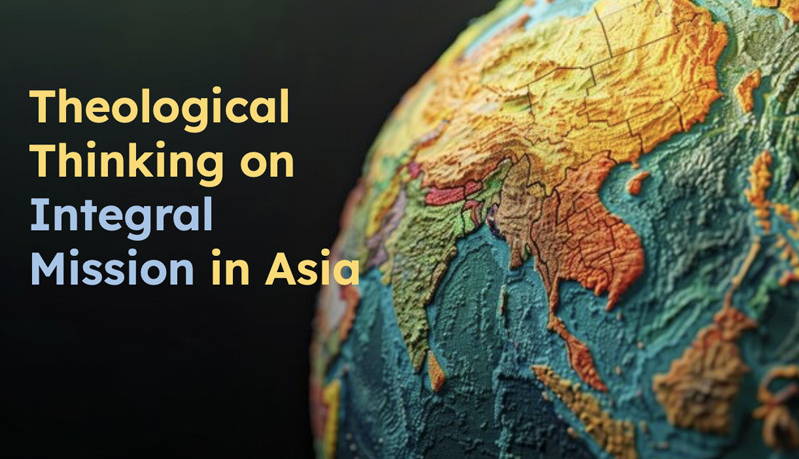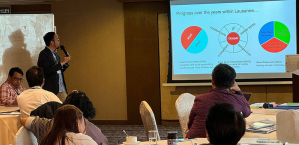
During October 14-16, 2024, the Asia Theological Association, in partnership with Tearfund in East and Southeast Asia, gathered its theological educators in Hong Kong to explore ways on how to strengthen and deepen the teaching of Integral Mission in theological seminaries and Bible colleges. The event brought forth exciting initiatives, innovated some new curriculum pathways, agreed on collaborative publications, and explored new dimensions of mission.
The official Asia Theological Association report on this gathering can be read online in their ATA newsletter (September-October 2024 issue).

At a personal level, I got to experience a very memorable moment, "one for the books" as they say. I was invited to tag team with Dr Timoteo Gener in leading a session about theological thinking on Integral Mission within the contexts of East and Southeast Asia. For my part, I tried to create connections based on how Integral Mission related conversations went at the recently concluded 4th gathering of the Lausanne Movement in South Korea.
The Spirit of God works through in the complexities of our interconnected lives.
One of my key take-aways from the Hong Kong gathering was from a session led by Dr Dwi Maria Handayani wherein she reminded us that in Asia Integral Mission cannot just be about responding to material poverty, it has to extend towards engaging with the intangibles—the restoration of the ‘face’ of those who have lost honor, dignity, and faith, something that the Spirit of God works through in the complexities of our interconnected lives.
The different workshops yielded a deep need to address, on one hand, perennial issues in the region such as:
- religious, cultural, and linguistic diversity (e.g., pluralism),
- colonial legacy (dualism/dualistic mindset),
- socio-economic disparity (poverty and inequality),
- geopolitics, restrictive policies, massive corruption in government,
and, on the other hand, emerging concerns brought about by:
- digital technology,
- an aging population and with it a widening generation gap,
- climate change,
- urbanization,
- gender confusion,
- public health,
- changes in the family structures, and
- churches getting even more disunited.
As a response, a wide spectrum of theological works is in order, to be carried out in ways that shall be inclusive, non-confrontational, and incarnational. For example:
- ecotheology that looks not only into creation care but also lifestyles animated by the vision of New Creation,
- a more mature public theology and socio-political theologizing, and
- courses on and concrete models of inter-religious dialogue.
A theologizing that embraces the insights and experiences of the Church at the grassroots level.
These works have to be marked by a more applied theology, engaged teaching methods, and enriched by studies involving a wide variety of disciplines. A theological endeavor that calls for the full gifting and involvement of the whole people of God. One that amplifies a paradigm shift from the usual theology done by so-called experts and specialists toward a theologizing that embraces the insights and experiences of the Church at the grassroots level as they live their lives out there in the world as faithful disciples of Christ.
By the end of the event we found ourselves with a great deal of work ahead! But I found joy in being able to journey with friends whose hope for a more flourishing life for the people East and Southeast Asia is unwavering. It is also so encouraging to note how different generations are valuing each other's role in forging a path ahead together. With all the talk about collaboration, we are confirming that it happens happily along the lines of beautiful relationships that have been nurtured over the years.
I, for one, cannot wait for the next curve as this journey progresses!
Originally published by Rei's blog Half-Meant. Republished with permission (from both Rei and Asia Theological Association).
Rei Lemuel Crizaldo is the Coordinator of the World Evangelical Alliance Theological Commission and regional coordinator role for Tearfund’s theology network in East and Southeast Asia. He is a thinker, communicator, and teacher, whose writing and active online engagement brings together people reflecting on contextual theology, holistic ministry, and the impact of digitality.





